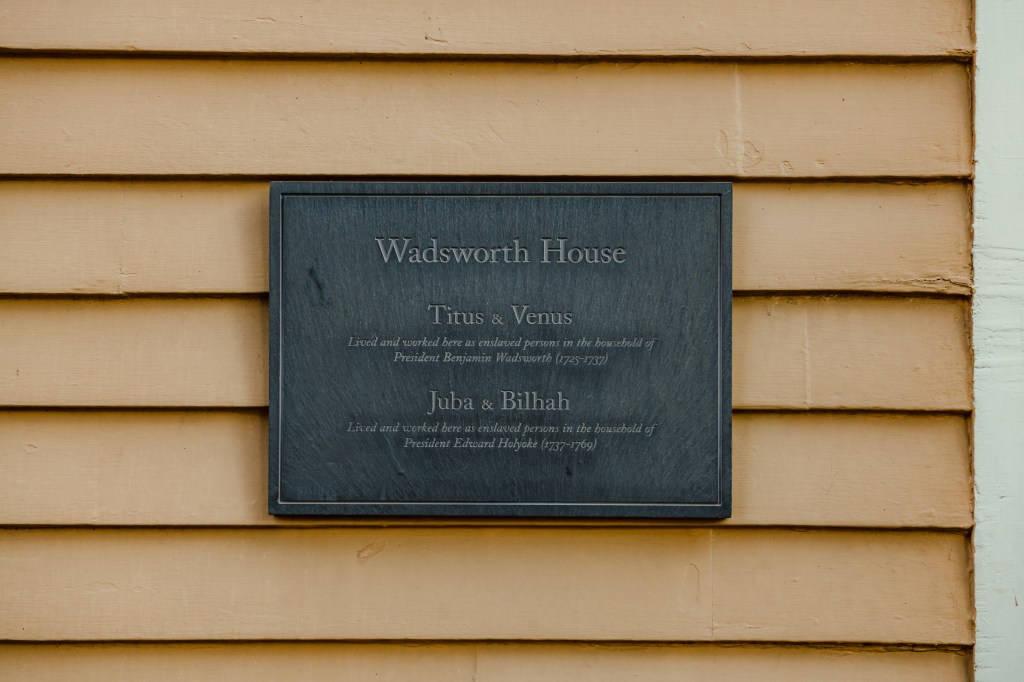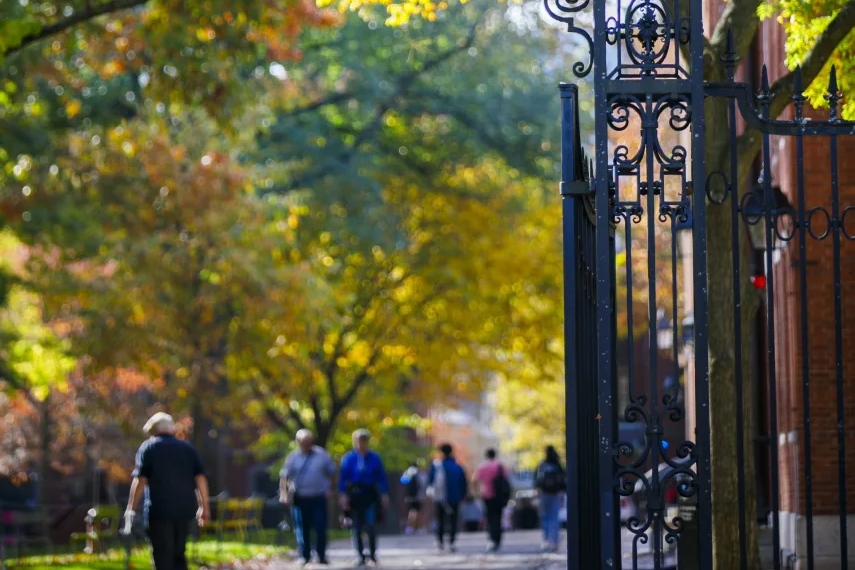Get Involved
There are many ways community members internal and external to Harvard can be involved with the Harvard & the Legacy of Slavery Initiative. Check out the information below to learn and contribute to the work of reckoning and repair.
Share Ideas
We welcome thoughts and questions about the Initiative, and ideas on how we can work with communities in and around Harvard to address and remediate systemic inequities that are the result of legacies of slavery.
Contact us at legacyofslavery@harvard.edu.
Participate in Learning Opportunities
Check out our resources for individuals and groups to learn, discuss, and begin processing what it means to start the journey of repair.
Subscribe to our Newsletter
Subscribe to our newsletter to receive updates from the Harvard & the Legacy of Slavery Initiative.
Participate in Our Tours
Guided Tour

Recognizing that engaging with the difficult truths of the University’s legacy of slavery can be daunting, Harvard Chaplains created the Landscape of Slavery at Harvard Guided Tour that makes space for reflection, ritual, silence, slowing down, and honoring the past, present, and one another. Thus a partnership between Harvard & the Legacy of Slavery and the University Chaplains was launched.
Participants of the tour will be guided by Harvard Chaplains and students from Harvard Divinity School and other Schools. The guided tour takes participants through six historic sites noted in the Report of the Presidential Committee on Harvard & the Legacy of Slavery. Guided tours are typically held during the fall semester (August – November) and spring semester (March – June).
Self-Guided Tour

The Harvard & the Legacy of Slavery Tour Experience is research-informed and explores Harvard University’s entanglements with the institution of slavery through a 10-stop tour in Cambridge, MA.
The stops on the tour reexamine familiar campus terrain, providing an opportunity to learn about a part of Harvard’s history that has long been hidden in plain sight. In addition, the tour elevates stories of Black women and men whose resistance and leadership have shaped the University—and our nation. The app also offers an opportunity to reflect on the history presented through a selection of curated art.
At Harvard University, we encourage individuals with disabilities to join and engage in our programs and activities. If you require accommodations or have any inquiries regarding physical access, please reach out to the Harvard & the Legacy of Slavery Initiative at legacyofslavery@harvard.edu prior to your participation.
Learning about a topic like the legacy of slavery can be overwhelming. Community Care Resources are available for members of the Harvard community seeking support for mental, spiritual, and emotional well-being.
